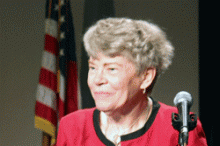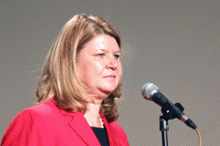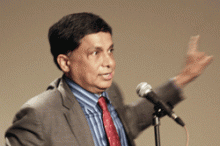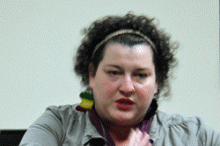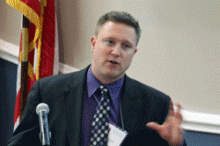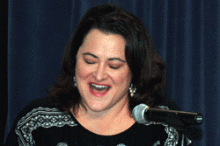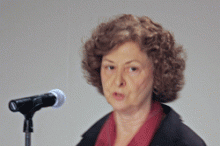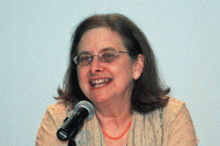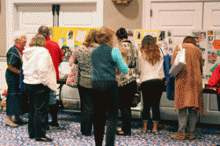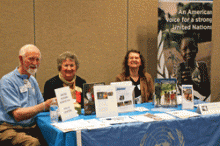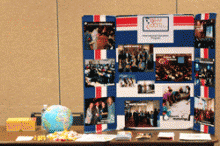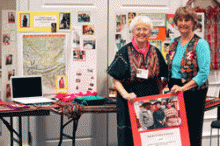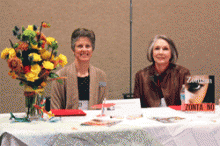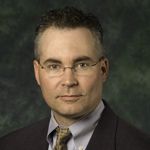2013 Dallas
CTAUN conference in Dallas :
Global Partnerships – Where Do You Fit In?
Saturday, 2 November 2013
Hughes-Trigg Student Center – Southern Methodist University
Welcome: Connie Rensink the chair of the Conference Committee welcomed everyone to the first CTAUN Conference held in Dallas.
She thanked the Committee and the sponsoring organizations. Then she introduced Anne-Marie Carlson, the chairperson of CTAUN (Committee on Teaching About the United Nations). Anne-Marie was pleased to announce that this is the twenty-fifth CTAUN conference nationally and the third to be held in Texas. She then introduced Ramu Damodaran, the Deputy Director for Partnership and Public Engagement in the United Nations Department of Public Information (DPI)
Opening Keynote: Ramu Damodaran, United Nations DPI
Ramu Damodaran, in UN style, used an acronym to describe the purpose of this important conference on global partnerships being held in Dallas:
D – Defining
A – Alliance between
L – Learning in and out of the classroom and
L – Livelihood
A – And
S – Sustainability of one’s own life and that of others
Ramu stated that CTAUN, as a partner of the UN Academic Impact Initiative, was one of the first groups to talk about the United Nations and how educators should deal with the real issues being discussed at the UN, and how they should be taught in the classroom. He reviewed the ten principles which Academic Impact is committed to support and advance:
1. A commitment to the principles inherent in the United Nations Charter as values that education seeks to promote and help fulfil;
2. A commitment to human rights, among them freedom of inquiry, opinion, and speech;
3. A commitment to educational opportunity for all people regardless of gender, race, religion or ethnicity;
4. A commitment to the opportunity for every interested individual to acquire the skills and knowledge necessary for the pursuit of higher education;
5. A commitment to building capacity in higher education systems across the world;
6. A commitment to encouraging global citizenship through education;
7. A commitment to advancing peace and conflict resolution through education;
8. A commitment to addressing issues of poverty through education;
9. A commitment to promoting sustainability through education;
10. A commitment to promoting inter-cultural dialogue and understanding, and the “unlearning” of intolerance, through education.
The new global “Alliance” is the partnership that needs to be formally recognized in order for the global civil society, the educational community, governments, and the United Nation agencies like UNICEF to work together to change the world. The major obstacle to “Learning” is the lack of education. Between 1970 and 2007, the increase in the education of girls worldwide has saved 4.2 million lives. In twenty-eight counties in Africa, thirty percent of the children still cannot read, write or do math.
There is also a link between “Livelihood” and poverty. In 2008, 28 million young people were unemployed. Thirty-eight million have given up hope. The percent of citizens who live in poverty has decreased from 43% in 1990 by 10%. The poor depend on water, sanitation, the forest for fuel and medicinal plants, and animals for their livelihood.
Twelve percent of the world’s catch of fish is available and not endangered yet 30% of the species are overharvested. We continue to harvest the endangered species for food. The forests are dwindling and we must find alternative sources to firewood like geothermal reserves.
Livelihood affects education and therefore sustainability. In India, where they rely on kerosene in places without electricity, nutrition suffers and children can’t study for school at home. The kerosene also damages the environment by increasing the carbon dioxide in the air. This damages the self, the family, and the global community.
The global partnership relates to an ideal world with no gap between the ideal and the practical. The Holocaust Museum in Washington DC revealed that the death toll was greater than we had thought. Hopefully, the regret and remorse of this tragedy will avert future holocausts and that leaders of countries where genocide or crimes against humanity occur or are likely to occur are now subject to the full force of specific international action.
Peace and security are crucial to livelihood. Governments must realize that they must invest in public programs for the social good instead of weapons. 2014 will be the one hundredth anniversary of the First World War and the first use of chemical weapons in Belgium. In 2015 we will celebrate the seventy-fifth anniversary of the UN Partnership for world peace. In a peaceful world we would have the infrastructure for economic balance to buy and sell goods leading again to livelihood.
In the Model UN Program, students learn to relate the world we live in to their own lives, geography, and the convergence of the world around them. This could transform our world. The Asia Society programs teach cultural empathy. The more affluent societies live in isolation and have raised a generation of children who live in their immediate neighborhood and are not aware or considerate of the world around them. Hopefully, the UN will find the way into their lives.
On September 23 of 1963 when President Kennedy addressed the General Assembly of the United Nations, he said that the United Nations can’t remain static and must change to attain “a true security of peoples and nations”. Programs like those of Zonta International and Fort Worth Sister Cities have worked within the charter to contribute to global good via education, people to people exchanges, and global friendships. We must move forward from 1945 to 1963 to 2013 where “peoplization” is the new globalization.
Governments worldwide must realize that we must not reinvest in weapons but in the social public good. Our planet will be “sustainable” only when every country and all people have peace and security, sanitation, drinking water, education (especially girls), and the economic balance to be able to buy and sell resources and products to support their livelihood.
Morning Panel
Anna Marie Sifford, a faculty member of North Hills Preparatory in Irving, TX was the moderator of the morning panel, “Engaging Young Adults Here and Now.” She began by stating that this Conference was about exploring the possibility of global partnerships in an interconnected world and so she asked, “What publications should students be reading?” The panelists had wide and varied answers including: Human Rights Watch, the Los Angeles Times, The Aljazeera network, CNN World, the Week, the Economist.
Her next question was directed to Brandon Wiley, of the Asia Society International Studies School Network. “What knowledge and skills do students need in the 21st century?” He believes that they must be able to investigate the world, understand perspective, communicate ideas and take action. Teachers must model this behavior and show students the way. He encouraged everyone to “try one new thing.” Then Ms. Sifford asked Jennifer Bowden of the World Affairs Council of Dallas her Xvision of the future role of young people with regard to sustainability and world affairs. Her answer indicated that our world is redefining what it means to be educated. An education that is international in scope weaves together the strands of security, diplomacy and the economy.
“What is the best way to engage in the struggle for human rights?” Dr. Rick Halperin of the Embry Human Rights Program answered by presenting several ideas: consult the UN’s Universal Declaration of Human Rights; be aware of violence against women; investigate what x our problems are as a nation, especially by knowing the human rights record of candidates for office; and finally he asked, “What kind of world do you want to live in? What do you want for your children? What is your commitment to eradicate human rights violations?”
Marti Cockrell of Global Elementary Model United Nations (GEMUN) said that it is important to begin learning about the UN in elementary school and cited the book, World Peace and Other 4th Grade Activities. Even a very young child can learn the UN acronyms. She maintains the program helps students be creative, cooperative, solve problems intuitively and learn how to debate with goodwill.
Nancy Marchant of Fort Worth Sister Cities International helps to bring people rather than nations together; in order to do this the social media are most important. Students must have knowledge of the world. One in five jobs is tied to international trade; a knowledge of geography is crucial. Our new relationship with China is important because it will affect economic development in both countries.
In the Question and Answer segment, other ideas surfaced. Collaboration is essential; X the human rights program at SMU has transformed the culture of the university and the community; a most helpful indicator of how to know a country is to read the speech given by its leader at the UN General Assembly meeting in the fall.
Morning Breakout Sessions
Embrey Human Rights Program: Development and Career Possibilities for Global Leaders
Dr. Halperin began with a video, “What can I do with this major?” He answered the question posed by listing at least ten areas where a Human Rights major would be perfect. Although his students learn about issues and take trips to places such as Rwanda and Holocaust sites, they also have to develop skills in writing, thinking, and public speaking. They must also learn a foreign language and do 20 hours of community service. Dr. Halperin believes there should be a “global reorientation of men” and that one goal of anyone interested in human rights is to make everyone around them uncomfortable.
Asia Society: Six School-wide Strategies to Globalize Your School
The Asia Society partners with 35 schools in 8 states with 1,700 students to develop global competency – to investigate the world, look at perspective and communicate ideas. Global Competency is a partnership that starts with leaders at school and then goes to teachers. It relies on a project-based, inquiry approach with real world experience, technology, service learning, language and arts. It encourages students to think smarter, not harder and develop relationships to share resources and become resilient. Teachers have NING – their own network – for creating projects for students, developing lesson plans and viewing actual video- taped model lessons.
World Affairs Council: International Education and Travel
Jennifer Bowden stated the goal of the International Education Program: to increase international awareness and cross-cultural understanding. It does this by presenting internationally known speakers to students both on and off campus and by presenting an International Career Day every year. It also develops workshops geared for teachers and sponsors an International Visitors Program. Currently the group is looking for students and teachers who qualify for an expense paid trip to Chile or Argentina in 2014.
The United Nations Model: Hands on Learning in a Global Context
A video showed the diversity of the students who are from many countries in the world. The program teaches them debate and public speaking since there are many opinions within the Model UN organization. Every delegate has the chance to pass a resolution which provides the opportunity for growth in leadership skills and conflict resolution. The students come up with the topics within their specific councils and do research. These position papers are a large part of GEMUN since students learn background information on their country.
Sister Cities: International Leadership Academy
Nancy Marchant described the International Leadership Academy for high school students and the Jr. International Leadership Academy for middle school students. These summer programs bring together Fort Worth students with students from sister cities in Italy, Germany, Japan, Hungary, Indonesia, Mexico, Swaziland and China. The diverse students forge new friendships as they explore global issues in a spirit of cooperation. Music and dance are their favorite activities as they are a common language. Dr. Michael Roemer then described an exchange program between his Trinity Valley School students and students from Japan, Mexico, Budapest and China. They also described the application, interview, and visa and travel arrangement process.
Anna Marie Sifford: The Impact of Integrating Real World Events in the Classroom
Ms. Sifford covered what she does in her classroom in a very dynamic fashion. In an informative and motivational manner, she shared the way she starts her classes each morning (she begins with the BBC World News in a Minute) and the way the students are evaluated later on in the class. She uses a series of strategies to engage all the students in order to motivate them being mindful of their different learning styles. She explained multiple response strategies to use in order to include current events in the classroom.
Afternoon Panel – Post 2015 Development Goals: From Vision to Action
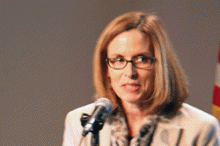 Kim Gideon, the Moderator, reviewed the 2015 Development Goals and stated that childhood death has been reduced by 30% and a half a billion fewer people live in poverty and that malaria has been greatly decreased. Some of the limitations have been in terms of conflict and violence, good governance, and sustainable development. The focus must now be people and planet centered. Human rights, equality and sustainability are the core with inclusive economic development, environmental sustainability, inclusive social development, and peace and security the spokes.
Kim Gideon, the Moderator, reviewed the 2015 Development Goals and stated that childhood death has been reduced by 30% and a half a billion fewer people live in poverty and that malaria has been greatly decreased. Some of the limitations have been in terms of conflict and violence, good governance, and sustainable development. The focus must now be people and planet centered. Human rights, equality and sustainability are the core with inclusive economic development, environmental sustainability, inclusive social development, and peace and security the spokes.
The Five Big Transformative Shifts of the Post 2015 Goals are inclusive, cooperative & accountable:
- Leave No One behind
- Put Sustainable Development at the Core
- Transform Economies for Jobs and Inclusive Growth
- Build Peace and Effective, Open and Accountable Institutions for all
- Forge a New Global Partnership
We watched the powerful video, In Our Hands available at http://www.post2015hlp.org/inourhands/
There are twelve Illustrative Goals and Targets:
- End Poverty
- Empower Girls and Women and Achieve Gender Equality
- Provide Quality Education and Lifelong Learning
- Ensure Healthy Lives
- Achieve Universal Access to Water and Sanitation
- Secure Sustainable Energy
- Create Jobs, Sustainable Livelihoods and Equitable Growth
- Manage Natural Resources and Assets Sustainably
- Ensure Good Governance and Effective Institutions
- Ensure Stable and Peaceful Societies
- Create a Global Enabling Environment and Catalyze Long-Term Finance
- Ensure Food Security and Good Nutrition
In 1946, UNICEF (United Nations International Children’s Emergency Fund) was established whose name was shortened to United Nations Children’s Fund in 1953. It addressed the problems of education, HIV, water and sanitation, vaccinations, and the environment. As a result, more lives were saved than at any other time. Now we need to work with education, fund raising, and public policy. We need passionate grassroots organizers working together in a more efficient way to achieve these goals.
Afternoon Panelists:
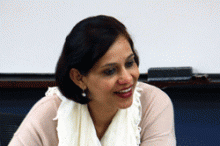 Meghna Tare, Director of Sustainability, University of Texas, Arlington
Meghna Tare, Director of Sustainability, University of Texas, Arlington
Meghna earned a MA in Chemistry and the Environment. She works in the Office of Sustainability where they work with transportation, water and sanitation, and a community garden with composting. They collaborate with business, government, and non-profits. They work with faculty and provide funding for students and other interested parties.
Meghna talked about sustainability and Higher Education. First you must attract leaders and those interested in sustainability. Second, the report card for sustainability might grade items like solar, geothermal and wind energy sources, vegan and healthful dining services, and courses offered in sustainability. The three main pillars of sustainability are the environment, social transparency, and economics. It is important for the whole community to buy in.
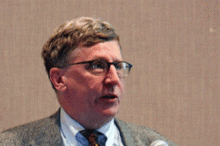 Dr. Bill Holstein, Executive Director, Human Rights Initiatives of North Texas.
Dr. Bill Holstein, Executive Director, Human Rights Initiatives of North Texas.
The Human Rights Initiative provides free legal aid to survivors of violence and immigrants fleeing from their homelands. They also defend immigrant women and children with issues of domestic violence and American husbands. Children who are unaccompanied or who come to the US alone are helped to get started. Many have risked everything to come here.
Bill stated that immigrant women are dealing with issues of persecution because of race, social status, and nationality in the United States.
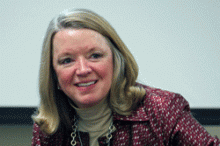 Barby Crabtree, President, Zonta Club of Dallas, Texas
Barby Crabtree, President, Zonta Club of Dallas, Texas
Barby has had an active career in the investment field and in management. She is currently the president of the Dallas Zonta chapter. Zonta is an international global organization of executives and professionals in business working together to advance the status of women worldwide through service and advocacy. The UN has worked hard to improve the status of women. This includes ending violence toward women, educating girls and women, and providing girls with the same opportunities as their brothers.
Barby shared that Zonta works in Africa funding two projects in Liberia. They offered 1.9 million dollars to teach women about fistula. They also addressed prenatal care and other preventative and rehabilitative measures. Another two million was granted to Rwanda to assist women and mothers who are HIV positive to care for their children. The goal is to be HIV free by 2016.
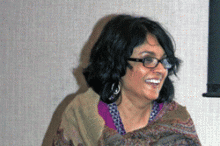 Bhavani Parpia, Founder, ConnecTeach
Bhavani Parpia, Founder, ConnecTeach
Bhavani is the International Business Initiative coordinator responsible for designing, developing and implementing the Hindi, Mandarin Chinese, and Arabic programs at the Hurst-Euless-Bedford schools. ConnecTeach, which she founded, works with teachers in schools located in the slums of India. In order to achieve sustainable education in India, more collaboration is needed to build schools and provide resources – and to continue the support. We can’t just donate and walk away. If you give one teacher money, fifty students will benefit. Over 800,000 students from class sizes of 50 -60 students per class have been impacted. In a partnership with Care, they are addressing women’s’ issues of equity, education and offer a curriculum for teenage girls. One hundred and eight million children are out of school. They also offer online programs in Afghanistan, Pakistan, and Palestine.
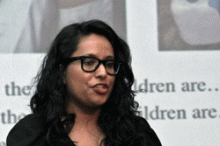 Meena Hague, Global Citizenship Fellow at the US Fund for UNICEF Southwest Region
Meena Hague, Global Citizenship Fellow at the US Fund for UNICEF Southwest Region
Meena works with faith-based organizations, schools, universities, volunteers, advocates, civil society partners, and other organizations to unite them on behalf of global citizenship through education, advocacy and fundraising through UNICEF initiatives and campaigns.
Meena described the work of UNICEF Houston. Globally they are working in Africa, Asia and Latin America. In Texas they are working with human trafficked youth. Houston has a large amount of water traffic with the pick-up and drop-off of the trafficked. They are collaborating with the District Attorney and Mayor to increase awareness and to “rescue and restore”.
Global competencies are also important. Many kids are not interested in others beyond their own lives. They must become activists and become globally involved by connecting with students from other nations. They need to experience successful relationships, discover mutual passions and to learn to nurture and support others.
Afternoon Breakout Sessions:
ConnecTeach: Instructional Practices that Yield Quality Education.
Participants learned how they can help this organization provide quality professional development for teachers in underserved schools around the world.
Zonta International: Business Women Advancing the Status of Women Worldwide.
This organization of business executives promotes women’s economic self-sufficiency, political equality, access to education and health care and the elimination of violence against women. The national chapter started in 1919 and the Dallas chapter in 1925. The Dallas chapter fund raises and gives one third to the international focus which is now violence against women. They also support two projects. Friends Place is a transitional living center where girls out of foster care are supported to attend school, work, and learn life skills. Their second project is the Greenmeadow Learning Center where they teach adult immigrants to speak English. They also provide scholarships and two thirds of the applicants are not born in the U.S. Amelia Earhart was a Zontan!
HRI: The Face of Immigrants and Refugees in DFW
Article 14 of the Declaration of Human Rights states that everyone has the right to seek asylum from persecution. One can claim asylum based on: race, religion, or nationality, as a member of a particular social group, or one’s political opinion. (Gender is not recognized.) The persecution must be by the government or by a government that is unwilling or unable to control the persecutors. A refugee arrives with permission and plans to settle; asylum seekers show up and then apply. The Violence Against Women Act created provisions in immigration law to allow victims of domestic violence to obtain lawful citizenship.
UNICEF: Community Mobilization; Trick or Treat for UNICEF and the UNICEF Tap Project
The “Believe in Zero” video was presented. Its theme is that no – zero – children should die of disease, starve, be without good water, be sick with AIDS, be caught in war or be deprived of an education. UNICEF works at the international and local levels. Locally, students Trick or Treat and participate in the High School Water Walk – a Tap Project that includes a 5K walk to simulate the 3.5 miles a child must walk to get water daily. They also participate in Run for Zero and the Global Poverty Project. Students can make a difference by being involved and raising money and awareness.
University of North Texas, The University of Texas at Arlington (UNT, UTA): The Role of Sustainability in Higher Education
Dr. Todd Spinks began by stating that each campus has its own challenge – including trees on one hand and the best use of urban space on the other – and has developed its own program. He also noted that some students have no interest in sustainability. Nonetheless, one of the benefits of having a sustainable campus is in recruiting. UNT has a minor in Sustainability and an International Development degree. Dr. Spinks’ advice: find your passion and then look for educational and volunteer opportunities.
Closing Keynote: 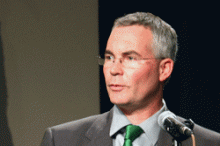 Dr. Todd Spinks, University of North Texas
Dr. Todd Spinks, University of North Texas
Dr. Todd Spinks is the Director of Sustainability at the University of North Texas. He said that the slogan for his university is, “We mean green.” In his position, he must balance the economic, social, and environmental factors. To grow the students into an International Sustainable Community, the following issues must be addressed: energy, human rights, sustainable architecture, and international business
He began by telling a story, saying that he went to Mexico where he presented a talk on sustainable development to young students. At the end of his talk, a little girl named Lily came up to him and asked, “Dr. Spinks, what is one thing I can do to make a difference?” One might have expected an answer like: “recycle”, “plant a tree”, “save water” or “clean up the trash”. Dr. Spinks didn’t tell us his answer, but went on to talk about his personal journey to sustainability, leaving all of us in suspense.
He said that ever since he was a young person, he has been intrigued by the idea that there is one thing that everyone can do very well. He cited a scene from the film, City Slickers, where one character asks another about the meaning of life and he replies that there is “one thing,” but he doesn’t say what it is.
He seemed to digress again when he asked why some communities fail to develop and thrive and why some people fight over resources. He said he began his career working for the EPA. Gradually he discovered that he was good at bringing people together – at helping failing and fighting communities. This was his one thing – a skill set that enables him to bring people together.
He returned, then, to the story of Lily. He answered her question saying, “Find one friend from another country and share your experiences.” Lily replied, “Dr. Spinks, will you be my friend?” He then challenged all of us to bring one person together with another. Be a mentor, guide or teacher. He believes that this personal contact will be the aspect of sustainability that will preserve the planet.
Closing Remarks
Connie Rensink thanked Dr. Spinks and noted that there were 43 members of the Delta Kappa Gamma Society International present as well as 21 students. She concluded by exhorting us to share our gifts.
Information Fair
An Information Fair sharing exhibits of groups related to the conference topic was held. The following pictures show some of these:
UN Keynote Speaker: RAMU DAMODARAN
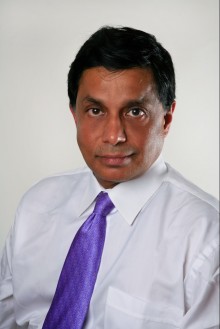 RAMU DAMODARAN is Deputy Director for Partnership and Public Engagement in the United Nations Department of Public Information’s Outreach Division and is chief of the United Nations Academic Impact initiative, which aligns institutions of higher learning and research with the objectives of the United Nations and the States and peoples who constitute it. He is also the current secretary of the United Nations Committee on Information. His earlier posts with the Organization have included the Departments of Peacekeeping and Special Political Questions, as well as the Executive Office of the Secretary- General.
RAMU DAMODARAN is Deputy Director for Partnership and Public Engagement in the United Nations Department of Public Information’s Outreach Division and is chief of the United Nations Academic Impact initiative, which aligns institutions of higher learning and research with the objectives of the United Nations and the States and peoples who constitute it. He is also the current secretary of the United Nations Committee on Information. His earlier posts with the Organization have included the Departments of Peacekeeping and Special Political Questions, as well as the Executive Office of the Secretary- General.
Ramu Damodaran has been a member of the Indian Foreign Service, where he was promoted to the rank of Ambassador, and where he served as Executive Assistant to the Prime Minister of India as well as in the diplomatic missions in Moscow and to the United Nations, and in a range of national governmental ministries.
Closing Keynote: Dr. TODD SPINKS
Dr. TODD SPINKS joined the University of North Texas in 2009, and oversees all sustainability efforts at the university in areas of research, operations, outreach, and teaching students. He has received over $2.2 million in grant monies, to conduct research and implement infrastructure projects in renewable energy. Dr. Spinks serves on, and works with, several UNT research groups, to include the Renewable Energy & Conservation research cluster. Dr. Spinks travels internationally consulting communities, government leaders, and corporate executives toward developing frameworks for sustainable growth. Prior to joining UNT, Dr. Spinks worked at the US EPA, as the lead social scientist on several regional and national task forces to develop solutions addressing community development, environmental justice, challenges to indigenous communities, intergovernmental relations, and environmental issues around the globe. Dr. Spinks’ research and course instruction focus on international sustainable community development, causes of political violence, and comparative politics. Dr. Spinks served in the US Army, stationed in Southeast Asia and the Middle East.

